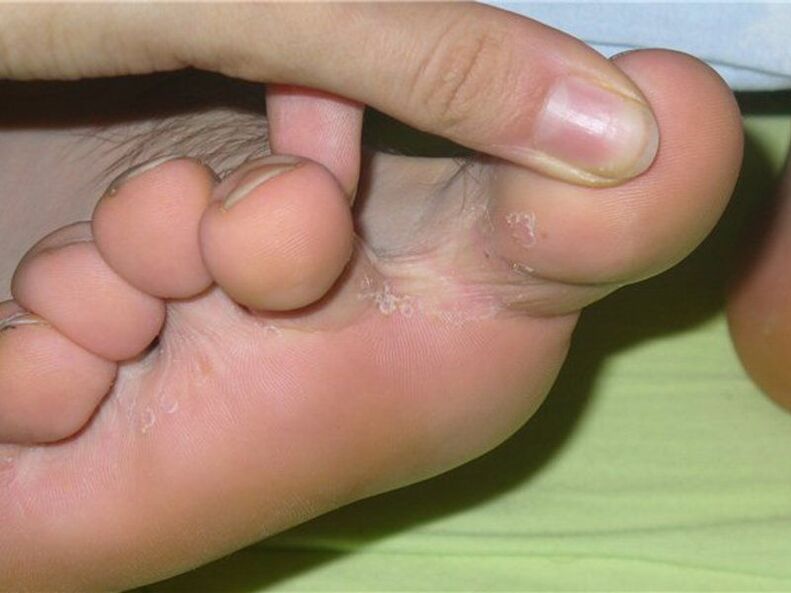
Yeast infection is a nasty fungal disease. The duration of its treatment is long, there is a high risk of re-infection. For more efficiency, traditional medicines are combined with folk remedies. The advantage of the latter is their low cost. It is important not only to quickly get rid of the fungus on the feet, but also to prevent its development.
Causes and symptoms of defeat
Initially, the symptoms of the disease appear on the feet and eventually spread only to the toes. In advanced cases, the nail plate is affected. In this case, the patient feels: itching; peeling; burning; pain.
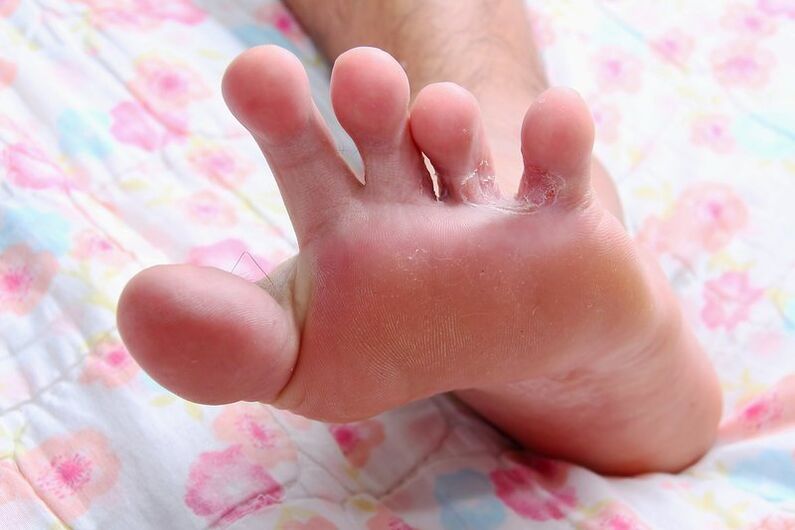
Sometimes pathology can begin to develop from the nail plate. This is possible if an infection is introduced during the pedicure. Common symptoms of yeast infection of the foot include:
- the formation of cracks in the heel;
- enlargement of the skin;
- the formation of bubbles with a clear liquid;
- redness of the skin.
The fungus can be a manifestation of an allergic reaction. In this case, the disease is acute. The causes of yeast infection can be different:
- low immunity;
- stay of the foot in a hot and humid environment for a long time;
- vascular pathology;
- foot injuries;
- wearing poor quality shoes;
- Diabetes;
- immunodeficiency pathologies.
It will be difficult to quickly get rid of the fungus on the feet, because the larger the affected area, the longer the therapy will last. Effective treatment is only possible if the drugs have been correctly selected.
Traditional treatment
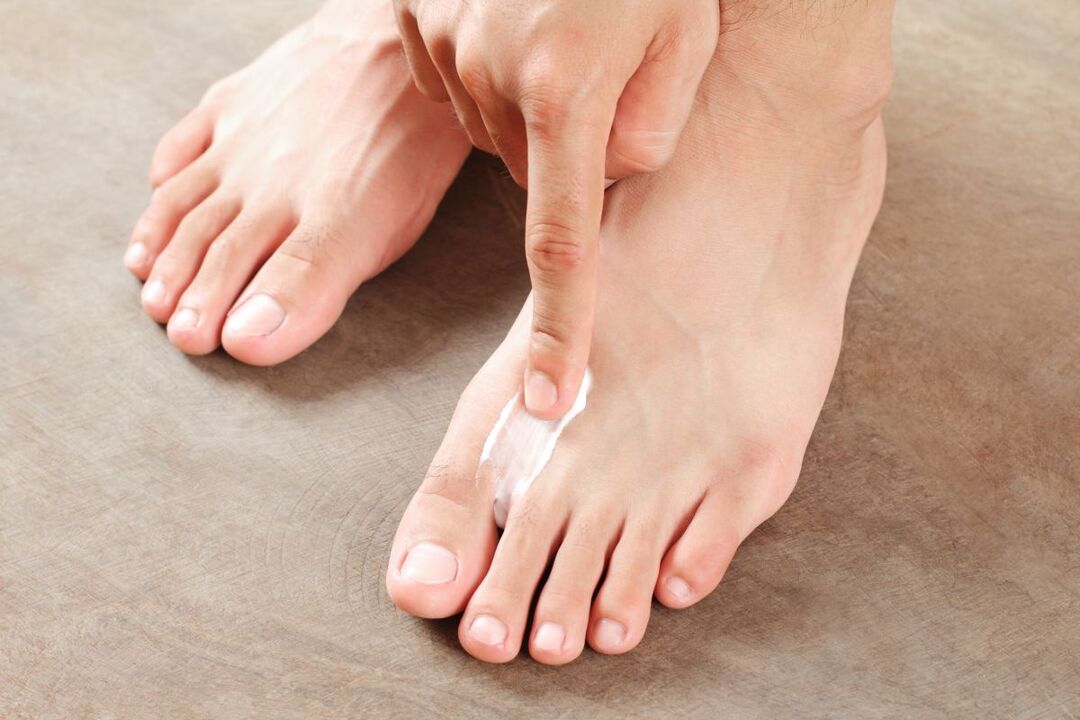
Most often, in order to remove the fungus on the legs, ointments are used, in the composition of which there are substances that neutralize the mycelium. They are for external use only. Most preparations contain additional components in the form of vitamin and mineral supplements. They help speed up the recovery process.
Fungal lesions are removed with antifungal drugs. They not only eliminate the symptoms, but also affect the cause of the disease. Ointment, which contains undecylenic acid and zinc, is also effective, so the drug is able to have a fungistatic effect.
The budget option is liniment, which contains xeroform, tar and camphor. These active ingredients quickly penetrate deep, relieve inflammation and itching.
Some experts recommend using medicated varnishes. The main advantage of this dosage form is the long-term effect on the nail plate.
You can get rid of fungus on the feet with the help of tablets. Their peculiarity lies in the fact that they disrupt the process of ergosterol production and destroy pathogenic microorganisms. These drugs have a number of contraindications, so they can only be taken as directed by a specialist.
Folk remedies
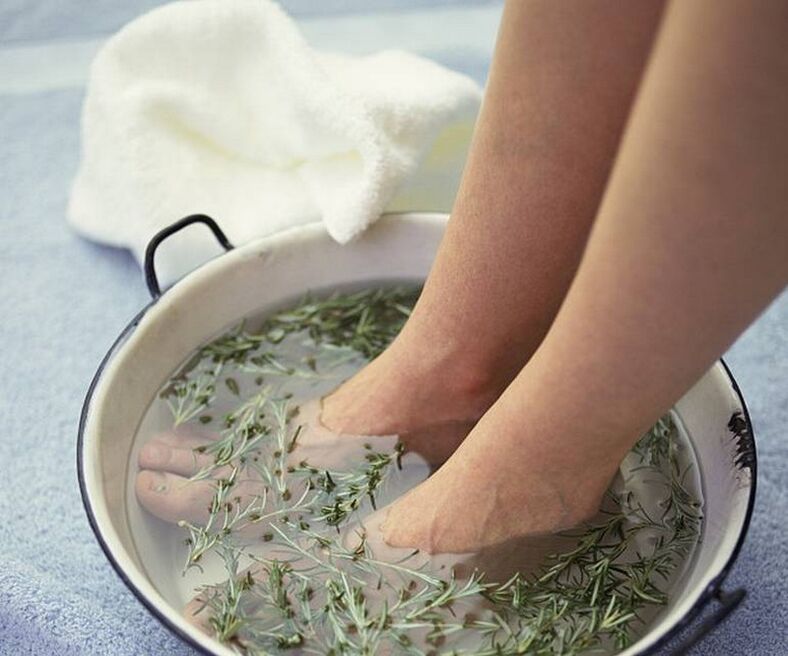
Medical treatment is quite expensive, but not always effective. Combining traditional medicine with traditional recipes will help you achieve good results in a short time.
The following remedies and herbs will help you get rid of the fungus on the feet:
- iodine;
- hydrogen peroxide;
- celandine;
- a soda.
Iodine is a good antiseptic and a fairly powerful halogen. Most strains of fungi are made up of protein, so this product helps fight them effectively. Before use, make sure that the patient is not allergic to iodine and is not hypersensitive to it. However, such a folk remedy only helps at the initial stage of the lesion, since the effect is only on the top layer. The iodine solution is very concentrated and must be diluted with alcohol before use. It is recommended to apply the drug at night. The treatment period should be at least one week.
Hydrogen peroxide helps normalize metabolic processes. Applications are made on the basis of a 3% solution. You have to hold them for 10 minutes. To achieve the effect, such compresses should be done 2 times a day for 5 days.
Celandine is often used to treat skin conditions. This can be explained by the fact that saponins and alkaloids are present in the composition of its juice. On the basis of the plant, baths, infusions, compresses and decoctions are prepared. Freshly squeezed juice is quite effective. It is used for compresses. Dry or fresh grass can be used for baths. For 100 g of dry base, about 1 liter of liquid is taken. Baths should be done every day for 10 days. After the procedure, the feet are wiped clean and the dead skin is removed. The affected areas are lubricated with juice.
Baking soda has an emollient and disinfectant effect. It is rarely used in its pure form. In most cases, this product is combined with salt or soap. Baths with soda and sea salt give a good effect. If you want, you can add a few drops of iodine to it. You need to spray your feet twice a day. The therapeutic course lasts about 5 days.
Folk remedies help to get rid of the fungus within a week, but only if the cause of the mycotic lesion is eliminated.
Preventive measures
It is easier to prevent a disease than to cure it in the long term. Fungal infections thrive in warm, humid environments. You should wear only high quality, correct size shoes. You cannot walk barefoot in public areas. In this case, it is better to give preference to rubber slippers.
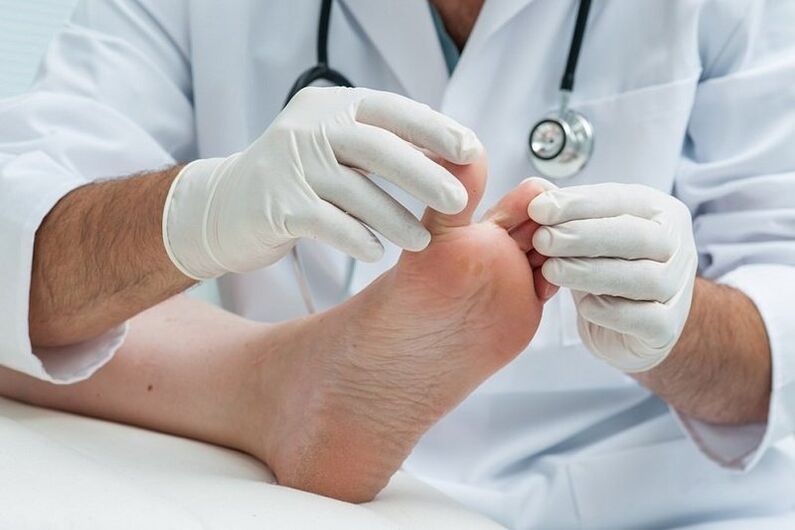
When shopping for new shoes, you should not try them on without a sock. It is best not to use running socks, as they may have been worn by someone infected with the fungus. After bathing or showering, dry your feet thoroughly, especially between the toes.
It is recommended to use individual and sterilized instruments for the pedicure. If a pedicure is performed in a salon, you should give preference only to a trusted master who uses high-quality and safe materials. Foot hygiene is an important part of prevention.
There are many remedies to fight against yeast infection of the feet. It is recommended to consult your doctor before using them. It is possible to recover from mycotic lesions only with folk remedies at the initial stage; for the treatment of more advanced cases, a combined approach is necessary.





























